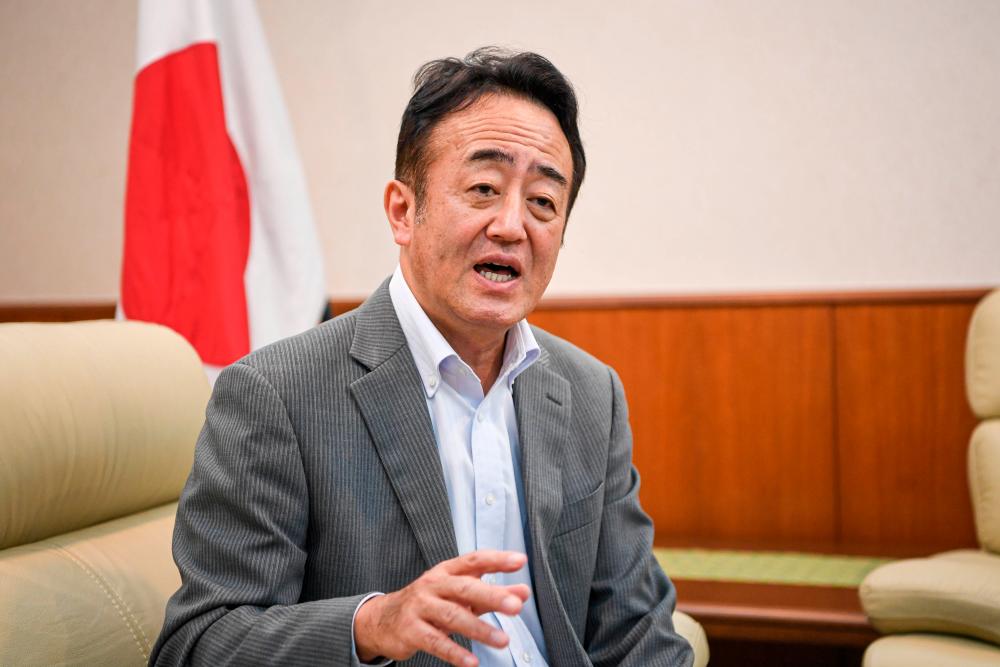KUALA LUMPUR: Marking a significant diplomatic milestone, the recently established Comprehensive Strategic Partnership (CSP) between Malaysia and Japan represents a pivotal achievement in their enduring relationship.
As Malaysia and Japan embark on this new chapter of collaboration, especially with the continued influence of the Look East Policy (LEP) introduced four decades ago, there is ample reason for celebration.
Recognising that this achievement is just the beginning, the collaborative spirit should be further fortified with robust and optimised cooperation for mutual benefits.
Taking Further Action
Japanese Ambassador to Malaysia, Katsuhiko Takahashi, emphasised the latest development as a testament to the commitment of both nations to collaborate on multiple fronts, transcending traditional bilateral relations.
“The relationship took a strategic turn in 2015 when both countries agreed to define their partnership as a strategic one. Fast forward to the present, the collaboration has evolved even further, culminating in the decision to elevate the status to a CSP,“ Takahashi noted.
“The upgrading is significant and indicates that we need to work together on a broader range of issues, including climate change, peace, and security, all of which Japan and Malaysia aspire to address,“ he added.
Takahashi made these remarks referring to the joint statement on the elevation of Malaysia-Japan ties to CSP, announced just before the 50th Japan-ASEAN Commemorative Summit in Tokyo.
During this historic event, both Prime Minister Datuk Seri Anwar Ibrahim and Japanese Prime Minister Fumio Kishida witnessed the signing and exchange of notes of the Official Security Assistance (OSA) Grant Aid by Japan, which includes providing monitoring and surveillance equipment to Malaysia. This equipment includes drones and fast interceptor boats for monitoring maritime borders.
Elaborating on OSA, Takahashi highlighted Malaysia’s shared values and principles, emphasising the importance of prosperity through free trade and the rule of law, which has contributed to its success as a prosperous nation.
Malaysia’s LEP played a crucial role in laying the foundation for a strong relationship between the countries and has also positioned Malaysia as a key partner in addressing global challenges.
“As both nations navigate the complexities of the current international situation and learn from the challenges posed by COVID, mutual support and cooperation become increasingly vital,“ Takahashi further emphasised.
Regarding people-to-people contact, Takahashi, who actively promotes Malaysia and Japan through his channels, noted that Japan will continue to work with Malaysia to preserve and promote significant cultural events and exchanges.
The upcoming University of Tsukuba campus in Malaysia, the first Japanese public university to establish a campus outside of Japan, is a clear demonstration of the growing bilateral relations between the two countries.
LEP Remains Relevant
On a related note, Takahashi asserted that the LEP framework, which has become an essential cornerstone in discussions between Japan and Malaysia, remains relevant and will continue to be so for many years to come.
He suggested that regular reviews and modifications are imperative to align with evolving situations in both nations, demonstrating a commitment to adaptability.
“LEP was initiated during its early years to emulate Japanese working ethics, as well as a broader spectrum of economic and technological cooperation, including education and industrial collaboration,“ Takahashi explained.
“However, with each passing decade, we’ve celebrated diversity and made necessary adjustments. For instance, during the 30th anniversary, we introduced high-end technologies into LEP, moving beyond simple manufacturing. As we celebrated the 40th anniversary, discussions expanded to areas like disaster risk reduction and addressing the challenges of an aging society, reflecting the changing needs of Malaysia,“ he added.
In response to Malaysia’s plans to include China in its LEP, Takahashi emphasised that the LEP is inherently a Malaysian policy, and the decision to include China in the framework rests entirely with Malaysia.
“The fundamental difference lies in the fact that Malaysia-Japan ties have a 40-year head start with an accumulation of people-to-people exchange, know-how expertise, and friendship,“ he noted.
Takahashi expressed hope that Malaysia and Japan, with their longstanding relationship, could serve as a positive example for other nations looking to emulate the LEP.
On Dec 18, international reports quoted Anwar as saying that Malaysia needs to be open to revising its LEP, including learning from China, emphasising that “Look East” now includes China as part of its focus. - Bernama









